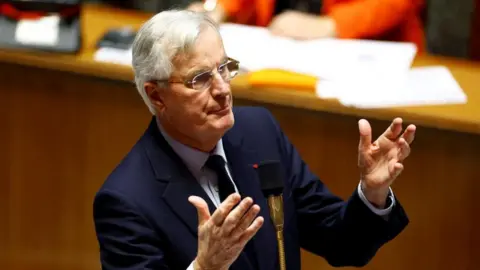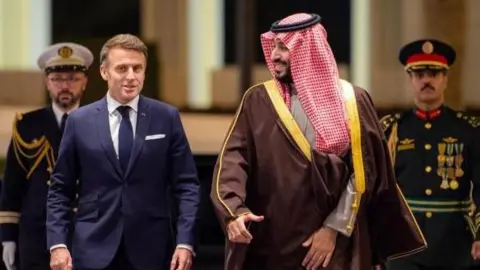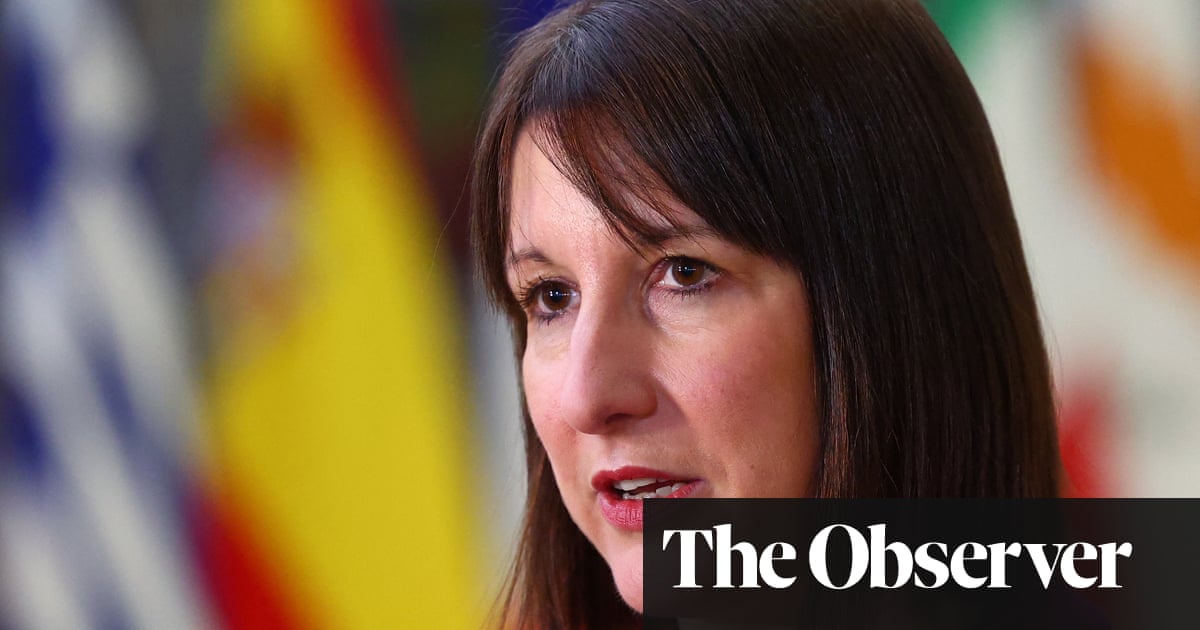Why France’s turmoil is grave concern for Europe
 Reuters
ReutersFrance’s government has toppled, after opposition parties in the French parliament backed a vote of no-confidence against Prime Minister Michel Barnier, who used special powers to force through a social security budget on Monday.
That the country is in turmoil – political and economic – is not only of grave concern to French citizens.
These are times of deep global instability.
And France, together with Germany, is traditionally seen as the EU’s “motor” in terms of ideological and political horsepower.
But that motor is spluttering, to put it mildly.
France is not alone in being riven and distracted by domestic political disputes. Germany will hold a snap general election in February after its bickering coalition government recently collapsed.
The EU as a whole is affected.
What of that determined show of strength and unity Europe aimed to maintain in the face of an expansionist, aggressive Kremlin?
And how will Europe fulfil its promise to remain steadfast by Ukraine’s side, if soon-to-be-again President Donald Trump reduces or even stops the flow of military aid to Kyiv?
France is, after all, Europe’s only large military power, along with the UK.
Trump’s return to the White House fills the EU and Europe more widely with anxiety.
How might his pent-up resentment over the US trade deficit with Europe and over European (insufficient) defence spending, explode into political realities?
At this key moment in geopolitics, leadership in the EU is sorely missing. The bloc is beginning to feel rudderless, with the rise of more autocratic, Russia-sympathising leaders in Hungary, Slovakia and Romania – and French and German focus weakened and distracted.
For France, there’s no real end to the political instability in sight.
President Emmanuel Macron will appoint a new prime minister, but even then parliament will remain divided between three mutually-loathing political blocs, able to hold each other hostage over much-needed reforms and a new budget.
And here is another reason why what happens in France matters beyond its borders: It’s the second largest economy in the eurozone. Its budget deficit is ballooning way beyond EU norms. French government debt is similarly eyebrow-raising.
This is unsettling for French taxpayers worried about the cost of living, and uncomfortable for the rest of the eurozone, fearing the knock-on effects of damage to their currency’s reputation if Big Beast France appears out of control.
Big Beast Germany, meanwhile, the EU’s largest economy, is also in trouble. Its once booming export industry so dented (even before the import tariffs threatened by Trump as of January 2025) that it risks pulling central and eastern European neighbours, long used by Germany as a factory floor, into its economically depressed orbit.
Macron in firing line
In all of this, Macron seeks to present himself as an island of calm.
While his prime minister took to French television on the eve of the no-confidence vote to warn of economic instability, appealing to French lawmakers to put country before party politics and support him and his cost-saving budget, Macron took a markedly different tone.
“We shouldn’t scare people with these things, we have a strong economy,” he said.
“France is a rich, solid country, which has made a lot of reforms and is sticking to them, which has stable institutions, a stable constitution.”
Macron was speaking from Saudi Arabia, where he wrapped up a three-day visit before flying back to Paris just ahead of the vote.
And he, too, is in the firing line.
The gridlock in the French parliament is the result of a snap election he called in France this summer and in which his party, Renaissance, took quite a beating.
 Shutterstock
ShutterstockUnder French law, no new parliamentary elections can be held for at least a year, meaning potentially no new cost-saving budget until late summer/autumn 2025, even if new elections were to produce a clear political result – something not indicated in public opinion polls.
And so, among Macron’s now numerous political opponents, there are increasing calls for him to resign. They claim this would break the political deadlock in France.
A cynic might suggest they are hoping for a fresh French president from their own political grouping.
Macron describes the idea of an early presidential vote – his full term runs out in 2027 – as “political fiction”. He insists he was voted into office by the French public to serve their interests.
But one political figure with good reason to push for his speedy political exit is a woman described as his long-term political nemesis: the serial presidential hopeful Marine Le Pen of the hard right nationalist National Rally Party.
She is under investigation for the alleged embezzlement of EU public funds – something she denies. If found guilty, though, she could be barred from holding political office for five years. This would mean having to sit out a 2027 French presidential election.
The verdict on her case is expected to be announced at the end of March.
If Macron resigned now, a presidential election would have to be called in 30 days, giving Le Pen the chance to stand and – she hopes this time – to win.
Politically, socially, economically, there is a lot riding in and outside France on what happens next.
Source link


